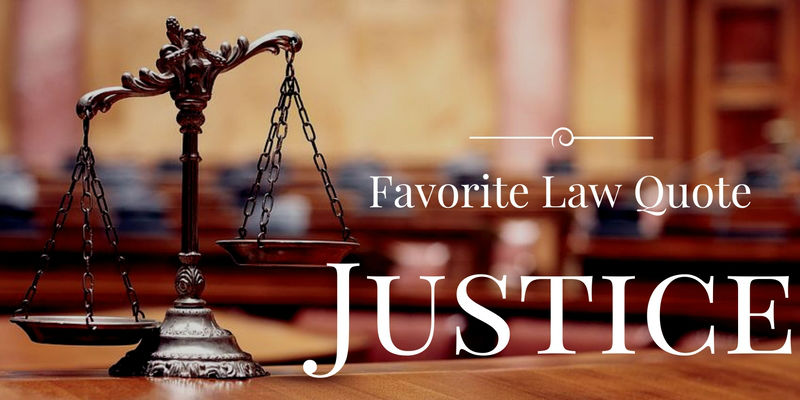EB1 Immigration Attorney
Understanding the EB1 Visa Category
The EB1 visa is one of the most prestigious employment-based visas in the United States. It is designed to attract top talent and individuals who have achieved significant accomplishments in their fields. The EB1 category is divided into three subcategories:
1. EB1-A: Individuals with Extraordinary Ability
This subcategory is for individuals who have demonstrated extraordinary ability in the sciences, arts, education, business, or athletics. To qualify, you must provide evidence of sustained national or international acclaim and recognition in your field.
2. EB1-B: Outstanding Professors and Researchers
This subcategory is for professors and researchers who have achieved international recognition for their outstanding achievements in a specific academic field. You must have at least three years of relevant experience and a tenure-track or similar position at a U.S. institution.
3. EB1-C: Multinational Executives and Managers
This subcategory is for executives and managers who have been employed by a multinational company for at least one of the past three years. The individual must be transferred to a managerial or executive position within a U.S. affiliate of the same company.
The Role of an EB1 Immigration Attorney
An EB1 immigration attorney plays a crucial role in guiding you through the visa application process. Here are some of the key responsibilities and benefits of working with a skilled EB1 attorney:
1. Case Assessment and Strategy
One of the first steps an EB1 attorney will take is to assess your case and develop a strategy. This involves evaluating your qualifications, accomplishments, and the specific requirements of the EB1 category you are applying for. A thorough case assessment ensures that you have the best possible chance of success.
2. Document Preparation
The EB1 visa application requires a significant amount of documentation, including evidence of your achievements, letters of recommendation, and other supporting materials. An experienced attorney will help you gather and organize this documentation, ensuring that it meets the high standards set by U.S. immigration authorities.
3. Legal Representation
If your application is challenged or denied, an EB1 attorney can represent you in any legal proceedings. This includes filing appeals, addressing Requests for Evidence (RFEs), and arguing your case before immigration judges.
4. Navigating Complex Regulations
U.S. immigration law is complex and constantly evolving. An EB1 attorney stays up-to-date with the latest regulations and policies, ensuring that your application is compliant and meets all the necessary requirements.
Steps in the EB1 Visa Application Process
The EB1 visa application process can be broken down into several key steps. Here is a detailed overview of what you can expect:
1. Initial Consultation
The first step is to schedule an initial consultation with an EB1 immigration lawyer. During this consultation, you will discuss your background, qualifications, and goals. The attorney will assess your case and provide an initial evaluation of your eligibility for the EB1 visa.
2. Document Collection
Once you decide to proceed, the attorney will help you gather and organize the necessary documentation. This may include:
3. Petition Preparation
The next step is to prepare and file the I-140 petition. This is the formal application for the EB1 visa. Your attorney will draft the petition, ensuring that it is well-organized and includes all the required information and documentation.
4. Filing and Processing
Once the petition is ready, it will be filed with the U.S. Citizenship and Immigration Services (USCIS). The processing time can vary, but it typically takes several months. During this time, your attorney will monitor the status of your application and respond to any Requests for Evidence (RFEs) or other inquiries from USCIS.
5. Adjustment of Status or Consular Processing
If your I-140 petition is approved, you will need to either adjust your status to a permanent resident (if you are already in the U.S.) or go through consular processing (if you are outside the U.S.). Your attorney can guide you through this process, helping you complete the necessary forms and attend any required interviews.
6. Green Card Issuance
If everything goes smoothly, you will receive your green card, allowing you to live and work in the United States permanently. Your attorney will ensure that you understand your rights and responsibilities as a green card holder and can help you with any future immigration needs.
Choosing the Right EB1 Immigration Attorney
Selecting the right EB1 immigration attorney is a critical decision that can significantly impact the outcome of your visa application. Here are some factors to consider when choosing an attorney:
1. Experience and Expertise
Look for an attorney who has extensive experience in handling EB1 visa cases. An attorney with a track record of success in this specific category will be better equipped to navigate the complexities of the application process.
2. Reputation and Reviews
Research the attorney's reputation by reading client reviews and testimonials. You can also ask for referrals from colleagues or professional organizations.
3. Communication and Availability
Choose an attorney who is responsive and communicates clearly. You should feel comfortable discussing your case and asking questions throughout the process.
4. Fees and Costs
Understand the attorney's fee structure and any additional costs that may be involved. Some attorneys offer a flat fee for the entire process, while others charge based on the complexity of the case.
Common Challenges and How to Overcome Them
The EB1 visa application process is not without its challenges. Here are some common issues that may arise and how an experienced attorney can help you overcome them:
1. Insufficient Documentation
One of the most common issues is insufficient or poorly organized documentation. An EB1 attorney will help you gather and present the necessary evidence in a clear and compelling manner.
2. Requests for Evidence (RFEs)
USCIS may issue RFEs if they need additional information or clarification. Your attorney will help you respond to RFEs promptly and effectively, ensuring that your application remains on track.
3. Denials and Appeals
If your application is denied, an EB1 attorney can help you file an appeal or a motion to reconsider. They will also provide legal representation in any subsequent proceedings.
4. Visa Backlogs and Processing Times
The EB1 visa category can be subject to backlogs and long processing times. An attorney can provide you with realistic timelines and help you navigate the system more efficiently.
Conclusion
The EB1 visa is a valuable opportunity for individuals with extraordinary abilities, outstanding professors and researchers, and multinational executives and managers to live and work in the United States. However, the application process can be complex and challenging. By working with an experienced EB1 immigration attorney, you can increase your chances of success and navigate the process with confidence.
FAQs
What is the difference between an EB1-A and an EB1-B visa?
The EB1-A visa is for individuals with extraordinary ability in their field, while the EB1-B visa is for outstanding professors and researchers. The key difference is that EB1-A does not require a job offer, whereas EB1-B does.
How long does the EB1 visa application process typically take?
The processing time for an EB1 visa can vary, but it typically takes several months. Factors such as the complexity of your case and the backlog at USCIS can affect the timeline.
Can I apply for an EB1 visa if I am currently in the U.S. on another visa?
Yes, you can apply for an EB1 visa if you are currently in the U.S. on another visa. However, you will need to adjust your status once your EB1 visa is approved.
What happens if my EB1 visa application is denied?
If your EB1 visa application is denied, you can file an appeal or a motion to reconsider. An EB1 immigration attorney can provide legal representation and help you build a strong case for reconsideration.
Can I include my family in my EB1 visa application?
Yes, you can include your spouse and unmarried children under the age of 21 in your EB1 visa application. They will be eligible to apply for derivative visas, allowing them to join you in the U.S.
What are the key documents required for an EB1 visa application?
The key documents required for an EB1 visa application include a detailed CV or resume, letters of recommendation, evidence of achievements, employment verification, and any other supporting materials that demonstrate your qualifications and accomplishments.
THE LAW OFFICES OF CHRIS M INGRAM
401 Wilshire Blvd Fl 12, Santa Monica, CA 90401
(310) 496-4292


